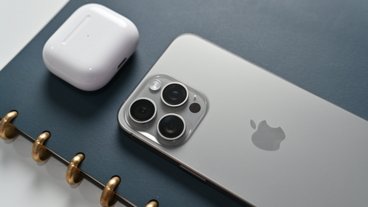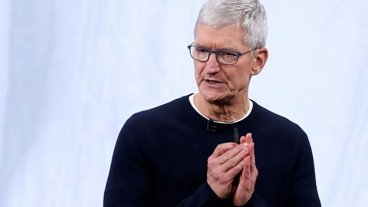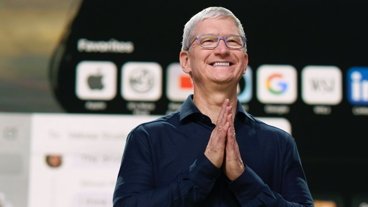Apple flirting with another record quarter for Mac sales
The firm's checks reveal the Cupertino-based company is selling an average of 28 iPhone 3Gs per day through each of its retail stores, down from 95 units per day in July, immediately following the handset's launch.
While those results would suggest a stark decline in quarterly sales, analyst Gene Munster said expanded international availability, the upcoming holiday shopping season, and the addition of Best Buy as an authorized iPhone reseller in US should combined to offset any slowdown in sales at the company's stores.
"We believe iPhone units will decline 5-15% sequentially, which is above recent reports from Asian suppliers suggesting up to a 40% sequential decline," he told clients in a research report Monday. "We are currently modeling for an 8% decline [to 6.4 million units]."
Separately, Munster said his observations regarding Mac sales lead him to believe Apple will best his 2.6 million Mac unit sales estimate for the current December quarter, which would position the company to potentially set a new single quarter Mac sales record should it ship more than last quarter's 2.611 million units.
More specifically, the analyst's checks show per-store Mac sales to be up 80 percent year-over-year from a similar survey in September of 2007 when each outlet was moving approximately 20 Macs per day. During his most recent analysis, Munster said Apple is averaging 36 Mac sales per store, per day, which gives him confidence in his 2.6 million unit estimate.
Piper Jaffray, which maintains a Buy rating and $250 price target on shares of Apple, says its retail store checks were performed at various times and days of the week. The firm's weighted average calculations assume 8 percent of Apple retail stores are flagship locations while the remaining 92 percent are regular-sized stores.
 Slash Lane
Slash Lane










 Malcolm Owen
Malcolm Owen
 William Gallagher and Mike Wuerthele
William Gallagher and Mike Wuerthele
 Christine McKee
Christine McKee
 William Gallagher
William Gallagher

 Marko Zivkovic
Marko Zivkovic









